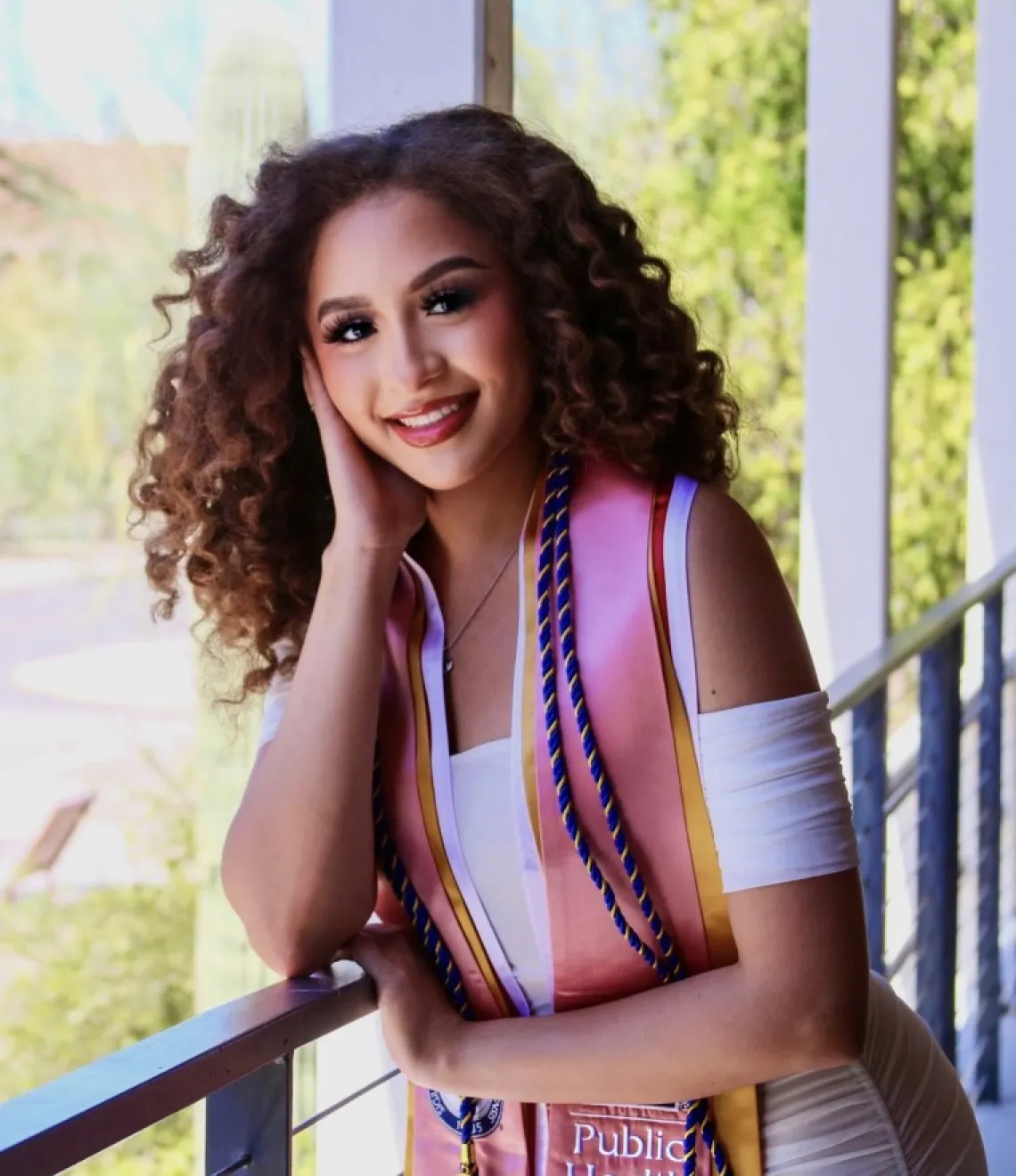The CACTI Blog: My Experience Creating Accessible Materials for Individuals with I/DD

By Jocelyn K. Watson, 2023 – 2024 Interdisciplinary Approach to Disability in Professional Practice Intern
During my time as an undergraduate intern at the University of Arizona Sonoran Center for Excellence in Disabilities, I had the pleasure of working closely with Dr. Lynne Tomasa. My initial interaction with Lynne was unexpected yet very natural, and soon developed into a great working relationship from which I’ve gained priceless experiences.
It was my second day as an official intern at the Sonoran Center and I still didn’t really know what I was doing. I was still getting to know everyone who worked there and was doing my best to make a good first impression. As I walked into the office with excitement for what my second day would bring me, I noticed my internship coordinator and the administrative assistant finishing up a Facetime call. The two of them were showing off brightly colored posters and stunning original art pieces that were strewn across a table in the center of the main office space to whoever was on the phone with them. I knew the artwork and posters had to be a part of a larger project, and I was instantly fascinated once I was able to get a better look at everything. My internship coordinator told me they were talking to Lynne about a project she had been working on about sexual violence awareness and people with intellectual/developmental disabilities (I/DD). This is a topic I was fairly familiar with because I had done a project on sexual violence awareness and people with I/DD for a class the previous semester. After expressing my familiarity and interest in the topic, my coordinator put the two of us in contact. I was so excited; I was already making connections and couldn’t wait to hear more about Lynne’s project.
Lynne and I met up the following week, and she gave me more insight about the project she was working on. She told me the whole project was focused on sexual violence and bringing awareness of the topic to individuals with I/DD since they are disproportionally affected by sexual violence. As heavy of a topic this project was focused on, I knew I wanted to be a part of it and help raise awareness. Lynne mentioned she was currently working on a comprehensive workbook on sexual violence for the project’s target audience and asked if I would be interested in helping out with research for the workbook topics. I eagerly agreed to help out and got to work immediately. As I began my research, I was stunned to learn how much more people with I/DD are affected by sexual violence when compared to people without I/DD. The knowledge I gained made me even more passionate about the topic. I knew I wanted to help make a difference.
As I began to wrap up my research and reported back to Lynne what I had learned, I thought my time with the project was coming to an end. I had researched all the topics I was asked to and thought my tasks for this project were complete. To my surprise, however, Lynne asked me if I was interested in writing a section for the workbook on topics I had been researching. I was shocked and extremely excited to say the least, considering that I was just an intern and this workbook was going to be published! As the invitation began to settle in my mind, I agreed while trying to remain cool on our Zoom call, even though I was jumping for joy on the inside. I was ecstatic and could not believe I was presented the opportunity to do something like this as an intern.
Writing a section for a workbook was a bit more challenging than I had initially anticipated. One of the biggest challenges I found when writing my section for the workbook was writing in plain language. Plain language is writing in a style that is accessible and anyone can understand. This was a new style of writing for me as a university student. Almost every piece of writing I’ve done in school has been in an academic style, which is more complex and requires advanced vocabulary. Plain language is intended to present concepts in a simplified way and uses common vocabulary that everyone can comprehend. Through continued draft revisions guided by feedback provided by Lynne, I began to get more comfortable writing in plain language. After several meetings with Lynne and even more drafts, my section for the workbook communicated everything I wanted it to from the research I had done. I was proud of the section I had written. It felt like it was complete, and Lynne agreed.
My experience as an intern at the Sonoran Center has been one that I learned so much from and developed skills that will be beneficial in my future career. I am so thankful to Dr. Lynne Tomasa for inviting me to work with her on this project and trusting me to write a section of her workbook. Working on this project has sparked a desire to do more work surrounding this topic and continue to work with the I/DD community in the future. I can’t wait to see what else is in store for this project and the impact it will have.
Editor's Note: Dr. Tomasa's workbook is anticipated to be published Spring 2024.
The CACTI Blog features the voices of our interdisciplinary trainees and Community Advisory Council members as they highlight diverse images of people with disabilities and provide community information and advocacy on disability issues. Check Out The CACTI Blog
